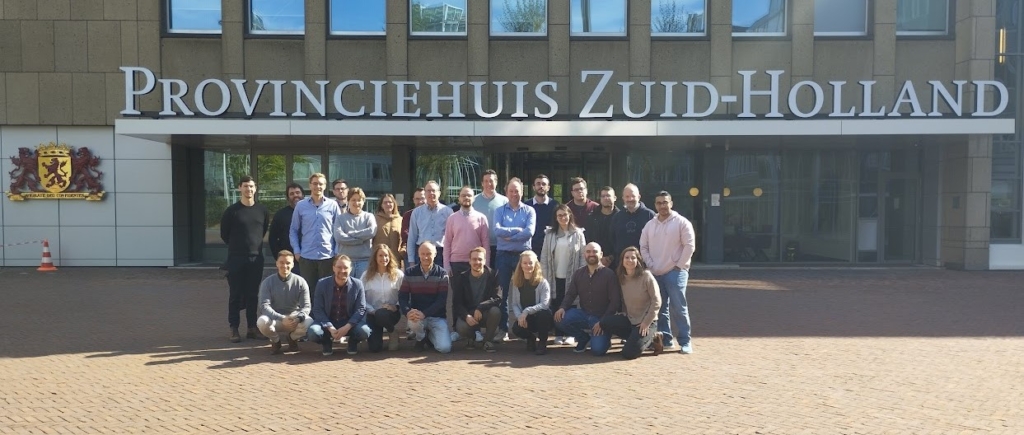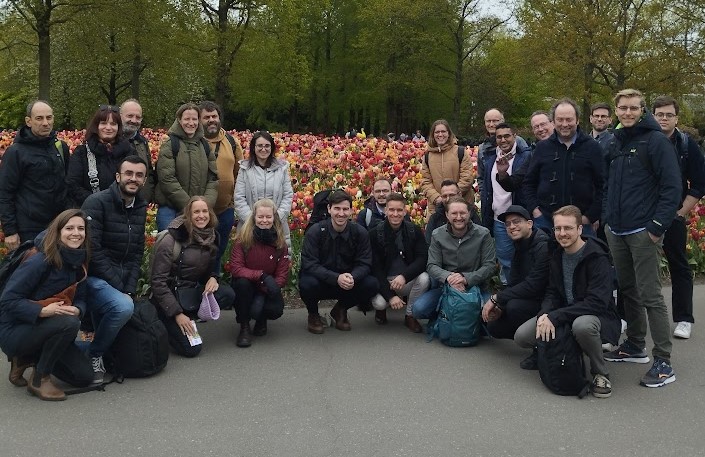The SYNCHROMODE partners gathered from the 22nd to the 24th April in the Hague, Netherlands, hosted by the Province of South Holland.
Read more: Third General Assembly in the hague
The first day began with a review of the overall project management led by CERTH-HIT (the Hellenic Institute of Transport, of the Centre for Research and Technology Hellas). During this, an examination of all the financial and administrative components was conducted to ensure smooth and transparent project management as well as discussions regarding the on-going tasks and open issues. Then POLIS, the leading network of European cities and regions presented the communication and dissemination actions. During the last quarter, SYNCHROMODE was represented in various events including the Autonomy Mobility World Expo in Paris on 19th and 20th of March, in Torino at the Vehicle & Transportation Meetings (VTM) on the 26th and 27th of March, at the Connecting Europe Days organised in Brussels on the 3rd and 4th of April as part of the Multimodal Traffic Management Cluster (MTM) booth and at the Transport Research Arena (TRA) on the 18th of April. The mobility consultants PNO then explained their strategy for the exploitation of the project’s results to ensure a long-lasting and market relevant legacy of the project’s results.
There was afterwards a deep dive into the already identified user and stakeholder needs and requirements. The transport representatives of the research and consultancy company Rupprecht Consulting presented these needs and requirements that have been elicited through the organization of workshops with the local stakeholders and how they will define the relevant governance schemes at each Case Study. Continuing with the main technological components of the project, NOMMON described how they will assess, integrate and analyse the different data sources used across the project. Manos Chaniotakis explained his latest results on the framework developed by UCL for accurately and timely modelling the state of passengers and goods transportation, to evaluate optimisation scenarios.
On the second day, Antonio D. Masegosa from Deusto University explained how they would design and develop the different optimization modules for enhancing transport network management. The focus then shifted to the integration of the SYNCHROMODE Toolbox and testing in the case studies. Jan-Niklas Williny from VMZ, Pia Hammer and Nadine Hrabia from Yunex explained how they will integrate the technological modules developed in the SYNCHROMODE Toolbox.
In the afternoon, the consortium partners visited one of the experimental sites, the Keukenhof area. This internationally acclaimed flower park opens its gates for just 8 weeks in spring, attracting up to 1.5 million visitors during this period. However, when coupled with sunny days enticing beach-goers and scheduled large-scale road works, serious congestion arises. The partners are striving to promote a shift towards collective transport modes to reduce travel times and congestion.

On the last day, the partners reviewed the state of development of all technological modules that will be integrated into the SYNCHROMODE Toolbox. The Province of South Holland concluded the meeting by organising a practical workshop with the Province’s traffic management officers and local stakeholders. The aim was to demonstrate how SYNCHROMODE results will improve significantly the daily work of traffic management. The initial group discussion centred on roadworks planning, highlighting the various entities responsible for coordination in the Netherlands, such as the Rijkswaterstaat. SYNCHROMODE aims to enhance coordination among stakeholders by replacing educated guesses with quantitative inputs. This shift could streamline coordination efforts and potentially forecast road user behaviour during roadworks. The subsequent topic addressed public transport and planning. The SYNCHROMODE Toolbox could facilitate quicker communication regarding road closures, possibly through the utilization of Floating Car Data. Additionally, it could aid in predicting alternative routes in the case of accidents. The workshop finally focused on policy-making, concluding that the prediction module should be prioritized. This module would assist policy officers in defining relevant incentives and fines to positively influence road user behaviour.
We would like to thank the Province of South Holland for the excellent organisation of these three insightful days and can’t wait to meet again in person in Bilbao at the end of November, hosted by Deusto University!